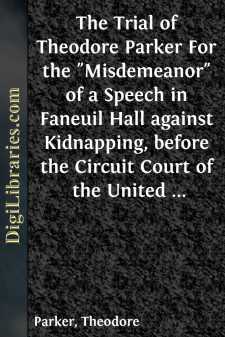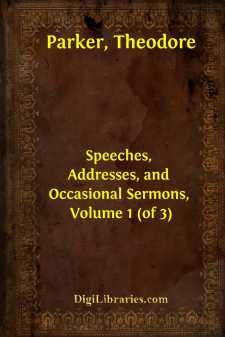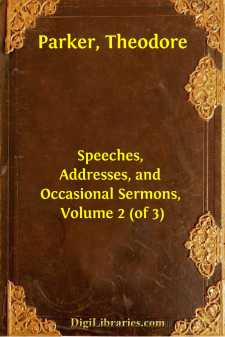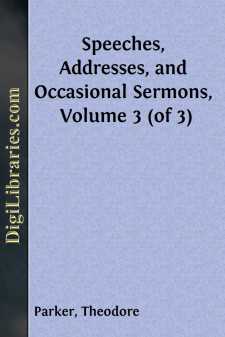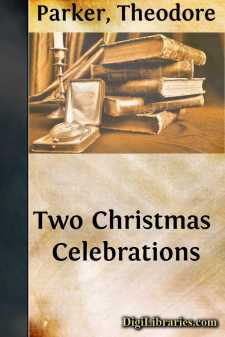Categories
- Antiques & Collectibles 13
- Architecture 36
- Art 48
- Bibles 22
- Biography & Autobiography 813
- Body, Mind & Spirit 141
- Business & Economics 28
- Children's Books 12
- Children's Fiction 9
- Computers 4
- Cooking 94
- Crafts & Hobbies 4
- Drama 346
- Education 46
- Family & Relationships 57
- Fiction 11826
- Games 19
- Gardening 17
- Health & Fitness 34
- History 1377
- House & Home 1
- Humor 147
- Juvenile Fiction 1873
- Juvenile Nonfiction 202
- Language Arts & Disciplines 88
- Law 16
- Literary Collections 686
- Literary Criticism 179
- Mathematics 13
- Medical 41
- Music 40
- Nature 179
- Non-Classifiable 1768
- Performing Arts 7
- Periodicals 1453
- Philosophy 64
- Photography 2
- Poetry 896
- Political Science 203
- Psychology 42
- Reference 154
- Religion 513
- Science 126
- Self-Help 83
- Social Science 81
- Sports & Recreation 34
- Study Aids 3
- Technology & Engineering 59
- Transportation 23
- Travel 463
- True Crime 29
Theodore Parker
Theodore Parker (1810–1860) was an influential American transcendentalist, theologian, and social reformer known for his progressive views on religion, slavery, and social justice. As a Unitarian minister, he advocated for the abolition of slavery and was an outspoken critic of the Fugitive Slave Act. Parker's ideas and speeches, especially his concept of a "government of all the people, by all the people, for all the people," deeply influenced later leaders like Abraham Lincoln and the Civil Rights Movement.
Author's Books:
Sort by:
by:
Theodore Parker
TO THE PEOPLE OF THE FREE STATES OF AMERICA. Fellow-Citizens and Friends,— If it were a merely personal matter for which I was arraigned before the United States Court, after the trial was over I should trouble the public no further with that matter; and hitherto indeed, though often attacked, nay, almost continually for the last fourteen years, I have never returned a word in defence. But now, as...
more...
by:
Theodore Parker
In all the world there is nothing so remarkable as a great man; nothing so rare; nothing which so well repays study. Human nature is loyal at its heart, and is, always and everywhere, looking for this its true earthly sovereign. We sometimes say that our institutions, here in America, do not require great men; that we get along better without than with such. But let a real, great man light on our...
more...
by:
Theodore Parker
By their fruits ye shall know them. Last Sunday I said something of the moral condition of Boston; to-day I ask your attention to a Sermon of the Spiritual Condition of Boston. I use the word spiritual in its narrower sense, and speak of the condition of this town in respect to piety. A little while since, in a sermon of piety, I tried to show that love of God lay at the foundation of all manly...
more...
by:
Theodore Parker
SPEECH AT A MEETING OF THE CITIZENS OF BOSTON, IN FANEUIL HALL, MARCH 25, 1850, TO CONSIDER THE SPEECH OF MR. WEBSTER. Mr. President and Fellow Citizens: It is an important occasion which has brought us together. A great crisis has occurred in the affairs of the United States. There is a great question now before the people. In any European country west of Russia and east of Spain, it would produce a...
more...
by:
Theodore Parker
Two Christmas Celebrations. A great many years ago, Augustus Caesar, then Emperor of Rome, ordered his mighty realm to be taxed; and so, in Judea, it is said, men went to the towns where their families belonged, to be registered for assessment. From Nazareth, a little town in the north of Judea, to Bethlehem, another little but more famous town in the south, there went one Joseph, the carpenter, and...
more...


